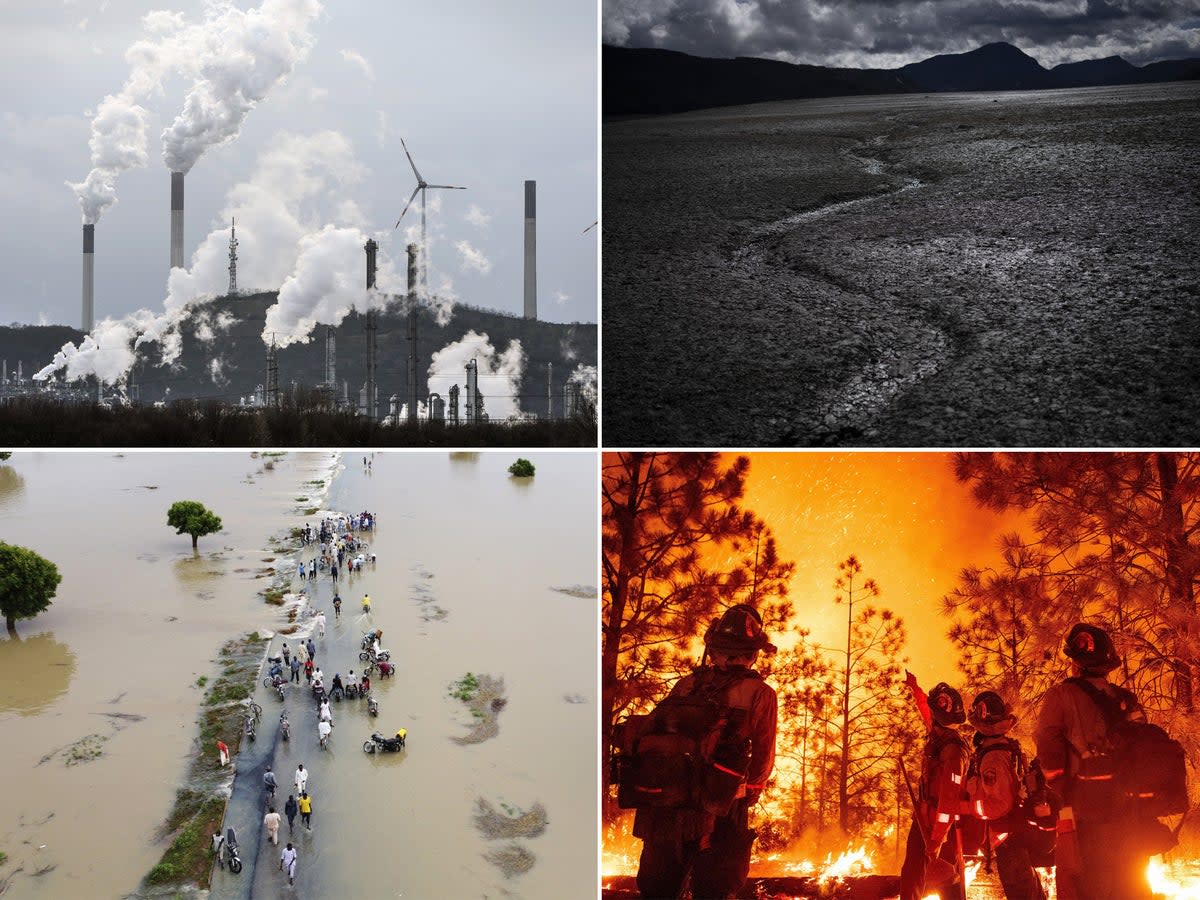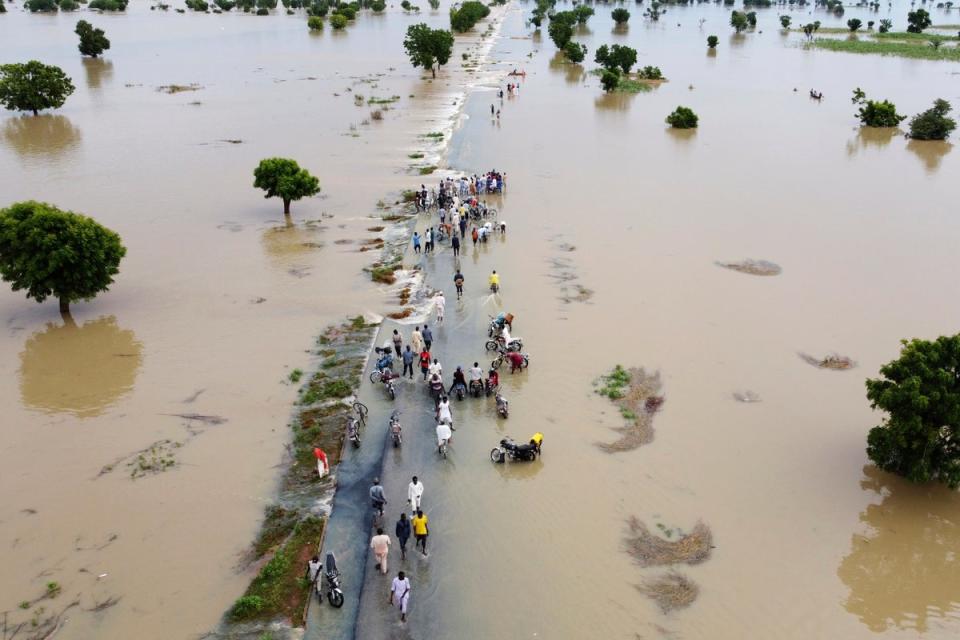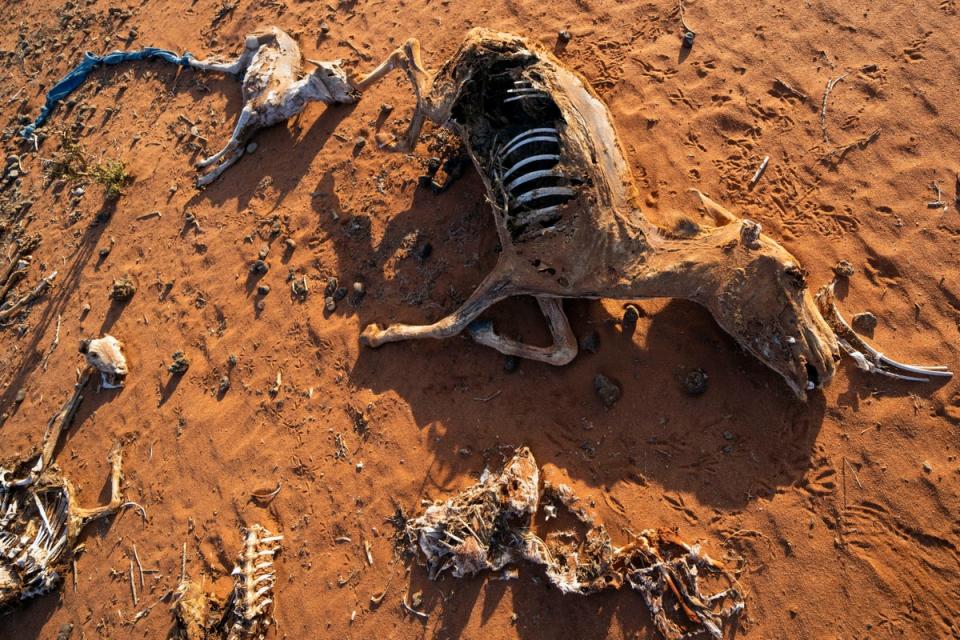How to defuse a climate time-bomb: World’s scientists say 1.5C still achievable but ‘humanity on thin ice’

After five years of meetings, reports and debate, the world’s scientific community has delivered an ultimatum on the climate crisis: “Act now to secure a liveable sustainable future for all.”
The so-called “synthesis report” was published on Monday from the United Nations’ Intergovernmental Panel on Climate Change (IPCC), a body made up of hundreds of international scientists from a dizzying array of disciplines.
The new report boils down the six previous IPCC reports, published since 2018, which have pulled together and analyzed thousands of scientific papers.
It amounts to the most clear-eyed, up-to-date assessment on the climate crisis: how it’s impacting all corners of the world and its systems; and how humanity is faring in attempts to mitigate disasters and adapt to those now unavoidable.
The report is clear that if transformative shifts are made across all parts of society to cut planet-heating greenhouse gas emissions this decade, it’s still possible to hold the average global temperature to 1.5 degrees Celsius (2.7F). (The world has warmed 1.1C (2F) since industrialized countries began burning oil, gas and coal 200 years ago.)
But the challenge is immense because emissions continue to increase largely from existing fossil fuel infrastructure - and more is still being built. The pace and scale of what has been done so far, and plans in the works, are far from enough.
At the current level of emissions, humanity will blow past the 1.5C target this decade.
Beyond 1.5C - a limit that all countries agreed to under the 2015 Paris Agreement - the threats increase at pace. But every incremental amount of warming that is avoided, will matter immensely - especially to the most vulnerable.
However the report, also warns: ”The likelihood of abrupt and/or irreversible changes increases with higher global warming levels.”
The IPCC is unlikely to publish again until near the end of this decade, at which point scientists’ repeated, urgent warnings will do little to keep the planet near 1.5C, if they continue to be ignored by governments and major industries.
“There is a rapidly closing window of opportunity to secure a liveable and sustainable future for all,” the IPCC states.
“The choices and actions implemented in this decade will have impacts now and for thousands of years.”
Among the key findings are:
Humans are responsible for virtually all global heating over the last 200 years
The rate of temperature rise in the last 50 years is the highest in 2,000 years
The amount of carbon dioxide in the atmosphere is at the highest levels in at least two million years

The impacts of global heating are hitting harder and faster than previously expected, the IPCC said, while countries are rapidly approaching some limits on being able to adapt to extremes.
“The climate time-bomb is ticking,” said UN Secretary General Antonio Guterres. “But today’s IPCC report is a how-to guide to defuse the climate time-bomb. It is a survival guide for humanity.”
He added: “Humanity is on thin ice – and that ice is melting fast.”
Emissions should be decreasing now, peak in 2025, then be sliced by around 50 per cent in the next seven years.
The findings, while bleak, remain tinged with resolve.
The likelihood of abrupt and/or irreversible changes increases with higher global warming levels.
IPCC Synthesis Report
“Multiple, feasible and effective options” exist to slash emissions and the cost of renewable energy is plummeting, the IPCC says.
The report also underlines that avoiding worsening outcomes means rapid cuts in fossil fuels across the board, and no new infrastructure for oil, coal and gas.
Yet it will be difficult to get rid of all emissions in sectors like agriculture, aviation, shipping, and industrial processes, the IPCC states, and these will need to be “counterbalanced” by deployment of carbon removal from the atmosphere to achieve net zero.
This could be through biological means like planting trees, soil sequestration, the restoration of peatlands and management of the ocean’s “blue carbon”.
But the IPCC notes that alongside “substantial reduction” in fossil fuels, there will be a role for technologies around carbon capture and storage.
There are also a diverse array of tools to help communities adapt to climate extremes, scientists said, and in ways that will make life better.
While holding to that 1.5C limit is expected to secure some level of livability around the world, it will vary dramatically from region to region.
Low-lying Pacific nations, sub-Saharan Africa and the Indian subcontinent are already experiencing catastrophic heatwaves, drought, flooding and cyclones.
Richer and more northern parts of the world are rapidly discovering that neither are they immune to these vicious cycles.

Alongside the impacts on people, the climate crisis is taking an extreme toll on the natural world. Hundreds of species have been lost at the local level, the IPCC reports, while mass mortality events have been recorded on land and in the ocean.
Approximately 30 -50 per cent of land, freshwater and ocean needs to be protected to help ensure a healthy planet, the report recommends.
As heat rises, food and water insecurity is expected to jump, and these scarcities will impact, and could make worse, events such as pandemics and conflicts.
The final IPCC instalment was published after a weeklong meeting in Interlaken, Switzerland, which saw deep rifts between rich and poor countries over emissions targets and financial support.
IPCC reports must be signed off by national governments as a sign that they accept the scientific findings - and use them in how they act.
The deadline was extended again and again on Sunday as big countries including China, Brazil and Saudi Arabia, as well as the United States and European Union, haggled over phrases in the text, The Associated Press reported.
The report serves as a backdrop to key climate events taking place this year.
Cop28, the international climate summit later this year in the UAE, will be the first “global stocktake” - a de facto report card on how each country is doing in cutting their national emissions.
The IPCC report also provides black-and-white evidence that the climate crisis is taking a disproportionate toll on countries in the Global South - and is likely to increase pressure on rich countries to stump up the climate finance they have promised, and failed to fully deliver.
Deaths from floods, droughts and storms were 15 times higher in highly vulnerable regions over the last ten years, compared to the most resilient areas.
“Climate justice is crucial because those who have contributed least to climate change are being disproportionately affected,” said Aditi Mukherji, a report author.
One of the biggest sticking points in the past week was how to define which nations count as vulnerable developing countries, making them eligible for money from a “loss and damage’ fund agreed at Cop27 in Egypt, AP reported.
While rapidly slashing emissions by 2030 is critical, countries also need to become more resilient to climate impacts at a faster pace.
For example, access to clean energy and technologies will improve health and air quality which especially benefits women and children, the IPCC noted.
But becoming more resilient gets harder with every sliver of warming.
Enough money exists in the global financial system to cut emissions, the IPCC also says. It just needs to be funneled in the right directions.
“Accelerated climate action will only come about if there is a many -fold increase in finance. Insufficient and misaligned finance is holding back progress,” said author Christopher Trisos.
Mr Gutteres on Monday called for an “Acceleration Agenda” which would stop licensing or funding of new oil and gas – consistent with findings of the non-partisan and influential International Energy Agency.
He also called for ending all international public and private funding of coal, a stop to expansion of existing oil and gas reserves, and shifting subsidies from fossil fuels to the clean energy transition.
Governments need to up their public funding for climate action and give clear signals to investors, while central banks and financial regulators must play a part, the IPCC states.
Technology, know-how, and policy measures should be shared in order to give every community a chance to avoid being locked into carbon-intensive futures.
Cities and urban areas offer the chance to rapidly-scale changes to food, electricity, transport, industry, buildings and land-use. And all the while, low-carbon lifestyles will improve people’s health and wellbeing.
“In short, our world needs climate action on all fronts - everything, everywhere, all at once,” Mr Guterres concluded.
“We don’t have a moment to lose.”


